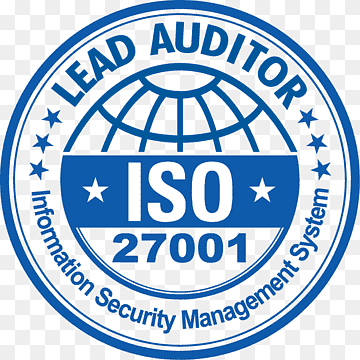Software Quality Assurance Engineer (SQA Engineer)
In the dynamic realm of software development, a Software Quality Assurance Engineer, often abbreviated as SQA Engineer, holds a crucial position. This professional is dedicated to ensuring the reliability and quality of software products throughout the development life cycle. The SQA Engineer is not merely a tester but a key figure in shaping the software’s integrity, functionality, and adherence to specified standards. Their role encompasses a proactive and strategic approach to guaranteeing that the software meets or exceeds the expected levels of quality and reliability.
This section will provide an insightful overview of the multifaceted role of an SQA Engineer, highlighting their significance in the intricate process of software development.
Evolution of Software Quality Assurance
As software development has evolved over time, so has the role of Software Quality Assurance (SQA). This subsection delves into the historical context of QA practices, tracing the journey of quality assurance from its early days to its present state. It explores the methodologies, frameworks, and practices that have shaped the evolution of SQA. In the context of the modern software development landscape, the growing importance of SQA is emphasized, showcasing how it has become an integral and indispensable aspect of ensuring the success and reliability of software products. This section sets the stage for understanding the pivotal role that SQA Engineers play in today’s software development processes.
Core Responsibilities of a Software Quality Assurance Engineer
Test Planning and Strategy
In the realm of software quality assurance, the Software Quality Assurance Engineer plays a pivotal role in developing comprehensive test plans meticulously aligned with the unique requirements of a given project. This involves a thorough understanding of the project’s intricacies, objectives, and the expected outcomes. The emphasis here lies in creating a strategic roadmap that guides the testing process towards optimal results. This strategic approach is crucial for ensuring not only the thorough coverage of various aspects but also effective identification of defects throughout the software development life cycle.
Test Case Design and Execution
Crafting effective test cases is an art that Software Quality Assurance Engineers master. This involves creating scenarios that mimic real-world usage, covering a diverse range of situations and user interactions. The goal is to simulate various conditions to uncover potential software defects and inconsistencies. The execution of these test cases is conducted with rigor, requiring a meticulous examination of the software’s responses and behaviors under different inputs and conditions. This process is fundamental to ensuring the software’s robustness and reliability.
Defect Tracking and Reporting
As the Software Quality Assurance Engineer executes test cases, the identification of defects is an inevitable part of the process. These defects are not merely noted but meticulously logged and prioritized based on their severity and impact. This prioritization is crucial for development teams to address critical issues promptly. Subsequently, the Software Quality Assurance Engineer generates detailed defect reports. These reports serve as comprehensive documentation for development teams, offering insights into the nature of identified issues and providing a roadmap for resolution. The clarity and thoroughness of these reports significantly contribute to the efficiency of the software development and maintenance process.
Testing Environments and Tools
Utilizing Testing Environments
Testing in the software development lifecycle is a nuanced process that involves navigating through various testing environments. This sub-section illuminates the importance of understanding different testing environments, including but not limited to development, staging, and production. Each environment serves a distinct purpose, ranging from isolated development spaces to real-world deployment scenarios. The Software Quality Assurance Engineer must possess a deep comprehension of these environments to conduct thorough and effective testing.
Moreover, this section discusses the implementation of tests in both controlled and real-world settings. It explores the significance of controlled environments for precise and focused testing, contrasted with real-world scenarios that replicate user experiences. The goal is to highlight the diverse landscapes in which software operates and the necessity for comprehensive testing strategies in each context.
Test Automation Tools
In the ever-evolving landscape of software testing, automation has emerged as a game-changer, enhancing efficiency and scalability. This sub-section provides an overview of popular test automation tools, such as Selenium and JUnit. It delves into the functionalities and capabilities of these tools, explaining how they streamline the testing process.
Furthermore, the discussion extends to the integration of automation into the testing process. Software Quality Assurance Engineers leverage these tools to automate repetitive and time-consuming tasks, ensuring faster and more accurate testing outcomes. The section emphasizes the role of automation in enhancing the efficiency of the testing phase, allowing SQA Engineers to focus on more complex aspects of software quality.
Collaboration and Communication
Working with Development Teams
The collaboration between Software Quality Assurance Engineers and development teams is a cornerstone of successful software development. This section underscores the importance of close collaboration throughout the entire development lifecycle. SQA Engineers are not isolated entities but integral members of a collaborative ecosystem. They work closely with developers to understand the intricacies of the software being developed, ensuring a comprehensive testing strategy that aligns with the development goals.
Furthermore, SQA Engineers play a pivotal role in providing constructive feedback to developers. This feedback loop is essential for enhancing software quality. It involves a dynamic exchange of insights, where SQA Engineers communicate identified defects, potential improvements, and areas of concern to the development team. This collaborative approach fosters a culture of continuous improvement and helps create robust, high-quality software products.
Effective Communication
Effective communication is a cornerstone of successful software quality assurance. This sub-section delves into how SQA Engineers communicate testing progress and results to stakeholders. Clear and transparent communication is vital for keeping all relevant parties informed about the status of the software’s quality. SQA Engineers must articulate complex testing processes and results in a comprehensible manner, ensuring that stakeholders, including project managers and decision-makers, are well-informed.
Moreover, collaboration extends beyond the immediate team, involving cross-functional collaboration. SQA Engineers collaborate with teams across different departments, such as product management and customer support, to ensure a holistic understanding of software quality. This collaboration contributes to continuous improvement initiatives, aligning the software’s development with broader organizational objectives.
Continuous Improvement and Adaptability
Embracing Continuous Learning
Continuous improvement is at the heart of effective software quality assurance. This section emphasizes the necessity for Software Quality Assurance Engineers to embrace continuous learning as a fundamental aspect of their professional development. Staying updated on industry trends and emerging technologies is crucial in an environment where technology evolves rapidly. SQA Engineers need to be proactive in seeking knowledge, whether it’s understanding new testing methodologies, exploring innovative tools, or staying informed about the latest advancements in software development.
Additionally, this sub-section discusses the importance of participating in training programs for skill enhancement. Continuous learning is not only about staying informed but also about actively acquiring new skills and refining existing ones. Training programs provide SQA Engineers with the opportunity to delve deeper into specific areas of interest, ensuring that they are well-equipped to tackle the challenges presented by evolving technologies and methodologies.
Adapting to Agile and DevOps Practices
Adaptability is a key trait for SQA Engineers, especially in the context of the prevalent Agile and DevOps methodologies. This sub-section explores the significance of aligning QA processes with Agile methodologies. Agile emphasizes iterative development and collaboration, requiring SQA Engineers to adjust their testing strategies to fit into this dynamic framework. Understanding and embracing Agile principles contribute to more effective and timely software delivery.
Furthermore, the section delves into the integration of QA into the DevOps pipeline. DevOps practices emphasize collaboration and communication between development and operations teams. SQA Engineers play a vital role in ensuring that quality is not compromised during the rapid and continuous deployment cycles of DevOps. By seamlessly integrating QA processes into the DevOps pipeline, SQA Engineers contribute to a smoother and more efficient software development lifecycle.
Key Skills and Qualities of a Software Quality Assurance Engineer
Analytical Skills
Analytical skills are the bedrock of a Software Quality Assurance Engineer’s proficiency. This section underscores the critical role of analytical skills in ensuring the effectiveness of the testing process. SQA Engineers are required to meticulously analyze software requirements to identify potential issues and challenges. By comprehensively understanding the specifications and intricacies of the software under test, SQA Engineers can develop robust testing strategies that align with project objectives.
Moreover, this subsection delves into the significance of analytical skills in evaluating testing results. SQA Engineers need to interpret complex data and discern patterns to provide valuable insights into the quality of the software. Whether it’s identifying recurring defects or recognizing areas of improvement, the ability to analyze testing outcomes critically contributes to the overall enhancement of software quality.
Attention to Detail
Attention to detail is a hallmark of excellence in software quality assurance. The section explores how SQA Engineers thoroughly review software components for accuracy, leaving no room for oversight. In the intricate landscape of software development, even subtle defects can have a cascading impact on performance. SQA Engineers with a keen attention to detail can identify and address these nuanced issues, ensuring the delivery of a polished and error-free final product.
This subsection emphasizes the role of SQA Engineers in meticulously examining every aspect of the software, from code snippets to user interfaces. By cultivating a meticulous approach to their work, SQA Engineers contribute to the creation of high-quality software that meets or exceeds client expectations.
Communication Skills
Effective communication is a linchpin in the collaborative realm of software development. This part of the section underscores the importance of communication skills for SQA Engineers. Articulating testing processes and results clearly is vital for conveying complex technical information to diverse stakeholders, including developers, project managers, and other team members.
Furthermore, this subsection explores the collaborative aspect of communication. SQA Engineers need to collaborate effectively with team members from diverse backgrounds, fostering a culture of open communication. Whether explaining testing methodologies or discussing identified defects, clear and concise communication is essential for the seamless functioning of the software development lifecycle.
Challenges Faced by Software Quality Assurance Engineers
Time Constraints and Deadlines
One of the primary challenges encountered by Software Quality Assurance Engineers is navigating the delicate balance between thorough testing and adhering to project timelines. This section delves into the inherent tension between the desire for comprehensive testing and the practical constraints imposed by project deadlines. SQA Engineers often face the challenge of delivering high-quality software within a predefined timeframe, necessitating strategic approaches to optimize testing processes without compromising on quality.
Moreover, this subsection explores strategies for effective time management in the context of software testing. SQA Engineers must develop efficient workflows, prioritize testing activities, and leverage automation where applicable to maximize productivity. The ability to manage time effectively ensures that the testing phase aligns with the overall project schedule, contributing to the timely delivery of a robust and reliable software product.
Evolving Technology Landscape
The dynamic and ever-evolving nature of the technology landscape poses a significant challenge for Software Quality Assurance Engineers. This section delves into how SQA professionals must continually address challenges presented by new technologies entering the software development arena. From emerging programming languages to novel testing frameworks, staying abreast of these advancements is crucial for effective quality assurance.
Continuous learning is highlighted as a key strategy for navigating the evolving technology landscape. SQA Engineers must actively engage in professional development, attend relevant training programs, and participate in industry events to stay informed about the latest trends and tools. By embracing a mindset of continuous learning, SQA professionals can effectively address the challenges posed by technological advancements, ensuring their skill set remains relevant and impactful in a rapidly changing environment.
Real-world Examples of SQA Impact
Case Studies
This section delves into real-world case studies that vividly illustrate the tangible impact of Software Quality Assurance (SQA) efforts on software quality and overall project success. Each case study serves as a narrative exploration of how proactive quality assurance practices have played a pivotal role in shaping positive outcomes.
The case studies will focus on specific projects or scenarios where the meticulous work of SQA Engineers has directly influenced software quality. It may include instances where potential issues were identified and rectified during the testing phase, preventing defects from reaching production. Additionally, the section will showcase how SQA efforts contributed to enhanced user satisfaction, improved system reliability, and successful project deliveries.
These case studies will not only highlight the technical aspects of SQA but also shed light on the collaborative nature of quality assurance. By working closely with development teams, project managers, and other stakeholders, SQA Engineers have been instrumental in fostering a culture of quality throughout the software development lifecycle.
Through these real-world examples, readers will gain valuable insights into the multifaceted impact of SQA practices and understand how proactive quality assurance can be a catalyst for project success in diverse industry contexts.
Future Trends in Software Quality Assurance
Artificial Intelligence in SQA
This subsection delves into the transformative role of Artificial Intelligence (AI) in shaping the future of Software Quality Assurance (SQA). It explores the integration of AI into test automation and defect prediction processes, emphasizing how AI-driven advancements have the potential to revolutionize traditional SQA methodologies.
The discussion on AI in SQA encompasses the utilization of machine learning algorithms for test automation, enabling intelligent test case generation, execution, and analysis. Moreover, it explores how AI can predict potential defects by analyzing historical data, patterns, and code changes. By anticipating defects before they manifest, AI empowers SQA Engineers to proactively address issues, ultimately enhancing software quality.
Additionally, this section anticipates future AI-driven advancements in SQA processes. It considers the evolving landscape of AI technologies and their application in areas such as predictive analytics, risk management, and adaptive testing. The exploration of AI’s potential in SQA provides readers with insights into the emerging trends that are likely to shape the future of quality assurance practices.
Shift-Left Testing
The discussion on future trends in SQA includes an overview of the “Shift-Left” testing approach. This approach involves moving the testing process earlier in the software development lifecycle, emphasizing the importance of early testing to prevent defects at their source. Shift-Left Testing aims to integrate quality assurance practices seamlessly into the initial stages of development, fostering a proactive approach to identifying and rectifying potential issues.
The section explores the benefits and challenges associated with Shift-Left Testing, highlighting its impact on reducing defects, enhancing collaboration between development and testing teams, and ultimately improving the overall efficiency of the software development process. By embracing this approach, organizations can instill a culture of quality from the project’s inception, leading to more robust and reliable software products.
Conclusion
Recap of the SQA Engineer’s Role
In this concluding section, we revisit the fundamental aspects of the Software Quality Assurance (SQA) Engineer’s role, encapsulating the key responsibilities and skills that define this critical position in the software development landscape. The recap serves as a succinct reminder of the multifaceted nature of the SQA Engineer’s contributions to ensuring software reliability, functionality, and overall quality.
By summarizing the essential responsibilities, such as meticulous test planning, strategic test case design, and effective defect tracking, readers gain a comprehensive understanding of the core functions that define the SQA role. Additionally, the emphasis on skills such as analytical thinking, attention to detail, and effective communication underscores the diverse skill set required for success in the field of SQA.
The Ongoing Evolution of SQA in Software Development
This segment explores the continuous evolution of Software Quality Assurance in the context of modern software development practices. It acknowledges the dynamic nature of the industry, where technological advancements, changing methodologies, and emerging trends continuously shape and redefine the SQA landscape.
The discussion may touch upon the integration of SQA into Agile and DevOps methodologies, the increasing reliance on automation and artificial intelligence, and the collaborative nature of quality assurance in cross-functional teams. By recognizing the ongoing evolution of SQA, the conclusion encourages professionals in the field to stay adaptable, embrace emerging technologies, and foster a proactive approach to quality assurance.
In conclusion, this section reinforces the pivotal role of SQA Engineers in the pursuit of delivering high-quality software products. It encourages both seasoned professionals and aspiring SQA enthusiasts to remain abreast of industry changes, continuously refine their skill sets, and actively contribute to the ever-evolving field of Software Quality Assurance.
FAQs about Software Quality Assurance (QA) Engineers:
1) What does a Software QA Engineer do?
A Software QA Engineer is responsible for testing software applications to ensure they meet quality standards, identifying and reporting defects, and collaborating with development teams to resolve issues.
2) What skills are required to become a QA Engineer?
Essential skills for a QA Engineer include proficiency in test planning, test case design, manual and automated testing, defect tracking, knowledge of testing tools, and strong communication and problem-solving abilities.
3) What is the difference between QA and testing?
Quality Assurance (QA) encompasses the entire software development lifecycle, focusing on ensuring processes and methodologies produce high-quality software. Testing is a subset of QA, involving the actual execution of tests to detect defects.
4) What are the benefits of implementing QA processes?
Implementing QA processes improves software quality, reduces defects, enhances customer satisfaction, increases productivity, and reduces overall development costs by catching issues early in the development cycle.
5) What are the different types of testing performed by QA Engineers?
QA Engineers perform various types of testing, including functional testing, regression testing, performance testing, usability testing, integration testing, and acceptance testing, among others.
6) How does automation testing benefit QA Engineers?
Automation testing helps QA Engineers improve testing efficiency, reduce manual effort, increase test coverage, and identify defects early in the development process, leading to faster delivery of high-quality software.









